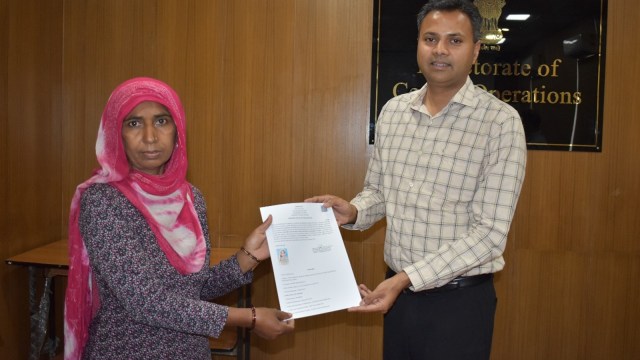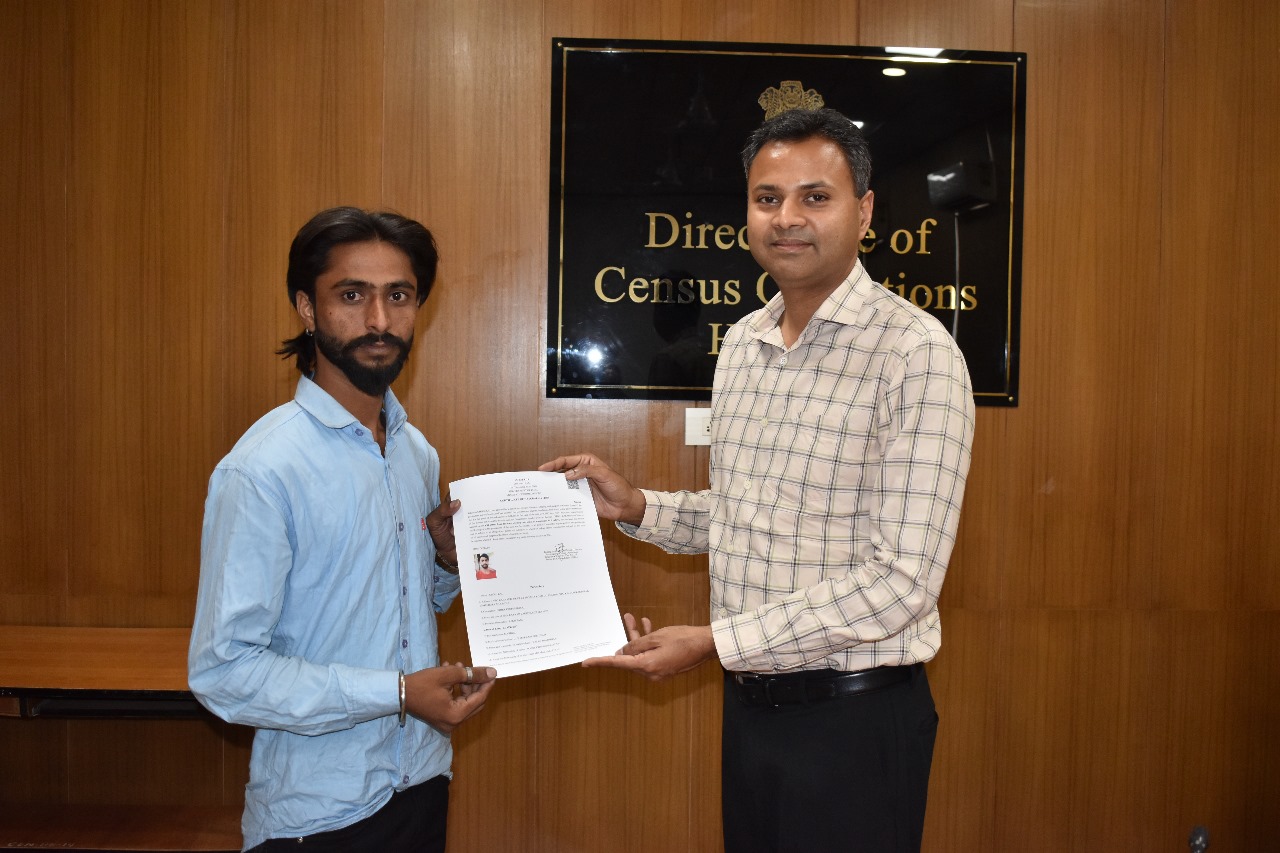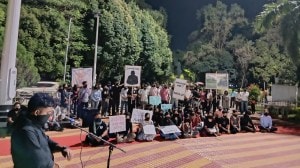From Layyah in Pakistan to Haryana: Pak Hindus apply for citizenship
Under the act, citizenship is granted to individuals who entered India on or before December 31, 2014, and belong to the Hindu, Sikh, Buddhist, or Christian communities from Pakistan, Afghanistan, and Bangladesh.
 over 500 Pakistani Hindus have applied for citizenship in Haryana under the new Citizenship Amendment Act. (Expres Photo)
over 500 Pakistani Hindus have applied for citizenship in Haryana under the new Citizenship Amendment Act. (Expres Photo)“I was Tarik Lal, a Hindu, but in my school, they named me Mohammad Tarik. Reading namaz was compulsory, and it was a child’s duty to check on all of us to ensure we read the namaz,” said Tarik, a 32-year-old refugee who moved from Layyah in Pakistan to Rohtak in Haryana, to The Indian Express.
Like Tarik Lal, over 500 Pakistani Hindus have applied for citizenship in Haryana under the new Citizenship Amendment Act. While 30 of them, including Tarik, have recently received their citizenship certificates, the verification process for others is ongoing. Sources in the department stated that there are about 1500 Pak based Hindus who are residing in Haryana, as per their assessment survey.
According to details provided to The Indian Express, most of the refugees who have moved to Haryana and applied for citizenship hail from Layyah in Pakistan, followed by Faisalabad and Dera Gazi Khan districts.
 As per the survey, there are about 1500 Pak based Hindus who are residing in Haryana (Express Photo)
As per the survey, there are about 1500 Pak based Hindus who are residing in Haryana (Express Photo)
Recounting his experience, Tarik Lal told The Indian Express, “I was quite young in 2005 when my four brothers and I, along with our parents, moved to India after obtaining a visa. The situation was grim. People in our locality wouldn’t even use the utensils we used. When my brothers and I went to school, the Quran was a compulsory subject. A student was specially tasked to check if we all read namaz; it was mandatory. They even changed my name in school to Mohammad Tarik instead of Tarik Lal.”
His family engaged in agriculture in Pakistan, but an incident compelled them to leave in 2005. “It was difficult. They wanted us to convert to Islam, which wasn’t acceptable. When we decided to sell our land after getting our visas, the community found out and refused to buy our land. We managed to sell only a part of it and left the rest behind,” Tarik said.
Another refugee, Rajesh Kumar, moved with his 12 family members from Layyah in Pakistan to Rohtak when his father, Lakshman Das, was being recorded as Lashkar, prompting them to relocate to India. “We learned that Hindus in our locality were moving out and applying for visas due to constant discrimination. My sister was five years old when we moved, and I was three. We were not allowed to celebrate our festivals and faced immense discrimination. My mother told my father that we couldn’t study and live in such circumstances. The tipping point was when they changed my father’s name to Lashkar,” Rajesh told The Indian Express.
 To apply for citizenship, these refugees needed a Pakistani passport, a long-term visa, and an affidavit from a community member residing nearby. (Express Photo)
To apply for citizenship, these refugees needed a Pakistani passport, a long-term visa, and an affidavit from a community member residing nearby. (Express Photo)
Lalit Jain, Director of Citizen Registration Haryana and Director Census Operations, told The Indian Express that 30 have been granted citizenship after due verification. The verification process for the others is still underway.
These applications have been submitted since April 2024. While the majority are Hindus, a small percentage of the applicants are Sikhs. Queries from others have also poured in at the department for the citizenship.
The officer mentioned that all applicants are those who settled in India between 2005/2006 and 2014. Proper verification, inputs from security agencies, and a thorough procedure for cross-verifying the documents and details submitted are followed. “Once the application is received, it first goes to a district committee headed by the Superintendent of Posts. Then, it proceeds to the Director Census, who heads a committee that includes officers from security agencies, the department of posts, and other state government officials. After due verification, the certificate is issued online,” he explained.
 According to the department, the majority of the refugees are settled in Sirsa and Fatehbad, followed by Rohtak and Faridabad. (Express Phioto)
According to the department, the majority of the refugees are settled in Sirsa and Fatehbad, followed by Rohtak and Faridabad. (Express Phioto)
Under the act, citizenship is granted to individuals who entered India on or before December 31, 2014, and belong to the Hindu, Sikh, Buddhist, or Christian communities from Pakistan, Afghanistan, and Bangladesh.
“Speaking to them, they reported facing immense discrimination. In schools, their children were made to sit separately and eat, which compelled them to move here,” the Director said.
“Most of them are agriculturalists who had substantial land in Pakistan and are now either daily wagers or run small grocery stores,” he added.
 These applications have been submitted since April 2024. While the majority are Hindus, a small percentage of the applicants are Sikhs. (Express Photo)
These applications have been submitted since April 2024. While the majority are Hindus, a small percentage of the applicants are Sikhs. (Express Photo)
According to the department, the majority of the refugees are settled in Sirsa and Fatehbad, followed by Rohtak and Faridabad.
To apply for citizenship, these refugees needed a Pakistani passport showing their date or stamp of entry into India, a long-term visa, and an affidavit from a community member residing nearby. Additionally, an affidavit from a community member, such as someone from the temple in the case of Hindus, was required.
The affidavit verifies the accuracy of the statements in the application and includes a declaration from the applicant that they have adequate knowledge of one of the languages specified in the Eighth Schedule to the Constitution.








